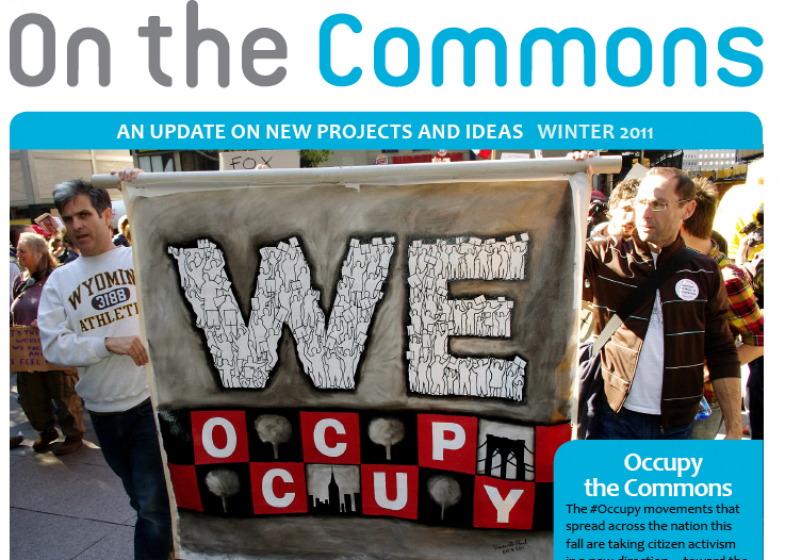The tremendous and widespread growth of the commons movement over the last year is testimony to the resonance of this ancient concept as a fresh solution to 21st century problems: dire environmental threats, widening economic inequity, out of control corporate power along with increasing privatization and eradication of the public sphere.
That’s why you hear about the commons at work in some surprising places—the business school at Notre Dame University, for instance. Professor Leo Burke, a former Motorola executive, has established the Global Commons Initiativeto research the applications of the commons in today’s economy and develop a curriculum about the subject for undergrads, MBA students and the generalpublic. Burke emphasizes the commons
is not some trendy idea, but a way of life rooted in Christian gospel, Catholic social teachings, Eastern Philosophy, indigenous beliefs and new breakthroughs from the frontiers of physics.
Prioritizing the common good over private economic gain, a core value of the commons, is also gaining ground. Elizabeth
Warren, the champion of middle-class economic interests in the Obama Administration who is running for Senator in Massachusetts, was widely celebrated for truth-telling on the campaign trail when she stated “there is nobody in this country who got rich on his own. Nobody.”
Where Next? You never quite know where the commons will turn up. Jan Cohen-Cruz, director of Imagining America—
a national consortium of universities and organizations dedicated to advancing
the arts, humanities and design—explains, “the commons, though not a formal part of our institutional vocabulary,
is an animating vision of Imagining America.”
Occupy the Commons
The #Occupy movements that spread across the nation this fall are taking citizen activism in a new direction—toward the commons. The protests create actual commons, shared public spaces that have become both a symbol and an example of the more cooperative, hopeful future that will benefit 99 percent of Americans. That’s why these action have been able to shift the political debate by galvanizing public support for a more equitable economy.
The occupiers are also experimenting with new forms of collaborative, commons-based, genuinely democratic decision-making based on mutual consensus and inclusiveness. And rather than an isolated band of protesters, the Occupy encampments
depend on the continuingsupport of the broader community to keep going.

